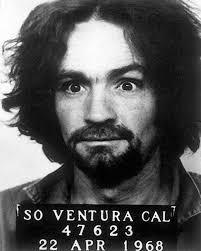Understanding Charles Manson: Cult Leader and Criminal

Introduction
Charles Manson, an American criminal and cult leader, left an indelible mark on the cultural and criminal landscape of the late 20th century. His orchestration of a series of murders in 1969 not only shocked the nation but also gave rise to the term ‘Manson Family’ as a descriptor for his followers. The ongoing interest in Manson’s life and crimes highlights significant themes of societal influence, mental health, and the nature of extremism.
The Manson Family and 1969 Murders
In the summer of 1969, Charles Manson led a group of young followers, often referred to as the ‘Manson Family,’ in a series of brutal killings that culminated in the notorious Tate-LaBianca murders. Manson believed in an apocalyptic race war, which he termed ‘Helter Skelter,’ and aimed to instigate this conflict through violent acts. The most infamous of these was the murder of actress Sharon Tate and four others at her home on August 8-9, 1969, followed by the killings of Leno and Rosemary LaBianca the next night.
Trial and Sentencing
Following a sensational trial that captivated the globe, Charles Manson and several of his followers were convicted of first-degree murder and conspiracy to commit murder. Manson received a death sentence, which was later commuted to life in prison due to changes in California law. His trial exposed the dark underbelly of the 1960s counterculture, revealing how Manson manipulated his followers in pursuit of his twisted ideologies.
Legacy and Cultural Impact
Though Manson died in 2017, his legacy persists in various forms of media, including films, books, and documentaries. Manson’s life serves as a cautionary tale about the vulnerability of individuals to charismatic leaders and the dangers of cult-like movements. The continued interest in Manson also reflects society’s fascination with true crime narratives and the complexity of human behavior, particularly in extreme circumstances.
Conclusion
Charles Manson remains a symbol of manipulation, violence, and societal breakdown. His actions have prompted discussions about mental health, criminal justice, and societal responsibility. As we reflect on his life and the haunting legacy he left behind, it is vital to understand the psychological underpinnings that can lead to such aberrant behavior and the importance of awareness in countering similar movements in the future.









